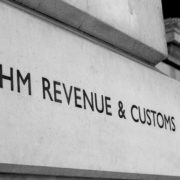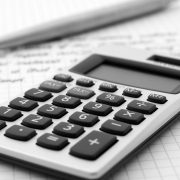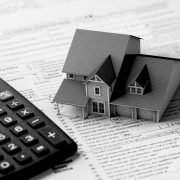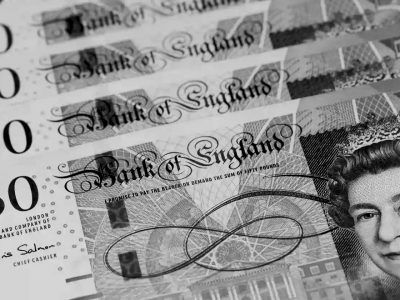There are taxes payable when you buy a property, taxes on your income when you rent a property out, and taxes when you sell the property, too.
Knowing what you’re responsible for from the outset will help ensure the next property you buy is both affordable and will realise profits for you during your period of ownership.
Here’s a run-down of the taxes you can expect to pay, how much you might be charged, and when you might expect to pay them.
Stamp Duty
Stamp duty – also known as SDLT in England and Northern Ireland, LTT in Wales and LBTT in Scotland – is payable by the purchaser of a property upon the completion of a sale.
Residential property
For individual investors, stamp duty on residential investment property is usually charged at 3 per cent above the rate for your main residence.
In other words, if the intention of buying a second or subsequent residential property is to rent it out rather than reside in it, then the rates of stamp duty which currently apply on freehold property (including the additional 3 per cent charge in each band) are:
- Up to £125,000 – 3 per cent
- £125,001-£250,000 – 5 per cent on the portion of the purchase price between these amounts
- £250,001-£925,000 – 8 per cent on this portion of the purchase price
- £925,001-£1.5 million – 13 per cent on this portion of the purchase price
- Above £1.5 million – 15 per cent on the remaining amount of the purchase price
Different rules apply for calculating stamp duty on leaseholds, shared ownership property and residential property bought by companies or trusts, amongst others. You can use this calculator to assess the amount of stamp duty payable in your specific circumstances.
Commercial property
Stamp duty rates for commercial property are lower than residential rates. They also haven’t seen the same sweeping changes as ‘buy-to-let’ stamp duty in recent years. Current rates for freehold sales and transfers of commercial properties are:
- Up to £150,000 – Zero
- £150,001-£250,000 – 2 per cent on this portion of the purchase price
- £250,001+ – 5 per cent on this portion of the purchase price
These amounts are also due on the leasehold premium, with additional stamp duty potentially payable on the ‘net present value’ (the value of the annual rent you pay) on leaseholds.
Another thing to be wary of with commercial property is that, if the purchaser ‘opts to tax’ the property and pay VAT at 20 per cent (see below for more information), then stamp duty is charged on VAT as well as the rest of the purchase price. Hence, it could cost more than you might have anticipated.
You can use this calculator to find out how much stamp duty you will be liable to pay upon the purchase of your property.
Value Added Tax (VAT)
VAT is chargeable at the point of sale/invoice on a range of property-related services at 20 per cent. This includes estate agency fees, solicitor and conveyancer fees, survey fees, architects and other legal and professional services.
Home improvement work is often subject to VAT, with conservatories, extensions and loft conversions all attracting VAT from builders, for example.
While VAT is not normally payable on commercial property transactions, it is likely to be payable on the cost of works for property renovation costs. This can be a significant outlay for bigger properties. For this reason, a commercial property owner can ‘opt to tax’ the property and pay VAT on the purchase cost, as they may wish to reclaim the VAT on the subsequent cost of any works carried out.
However, there are complications here as VAT will then also be chargeable on any rent on the property, which tenants would be liable to pay (though they, too, could potentially reclaim this if they are a VAT registered business, for example).
As you’ve likely surmised, VAT rules are complicated, and while there are circumstances in which VAT could be reclaimed or is zero-rated, professional advice is encouraged to make sure taking the option to tax a property is in your interests.
Property Income Tax
Individual property investors are taxed on the income received from property rentals against their personal tax allowance. For those with multiple properties, this can be expensive: you could pay up to 45 per cent tax on a proportion of your income.
Keeping a deposit back when a tenant leaves a property will also count towards the income you receive and is therefore taxable.
Historically, mortgage interest rate relief could be claimed (hence the interest you pay on your mortgage could be deducted from your rental income), but this will no longer be the case from 2021, so should not be relied upon as part of your calculations.
There are, however, a range of ‘allowable expenses’ which can continue to be deducted from your property income. These include certain renovation and maintenance costs; replacement of white goods, electrical items, beds or televisions on a like-for-like basis; vehicle mileage for trips to and from the property, and more besides.
Subtract these ‘allowable expenses’ from your rental income to work out the amount you will be liable to pay tax on. Remember to keep receipts to evidence this.
Tax is not payable in the event a loss is made; such a loss can be carried forward and offset against taxable income in future years, for up to 3 years.
Corporation Tax and Dividend Tax
Corporation tax is payable when property is held in a company, as opposed to income tax, which is payable by individual property owners.
Corporation tax is currently set at 19 per cent, which is significantly lower than the personal allowance for higher or additional rate taxpayers. And while individuals are taxed on their whole rental profit, companies can choose to distribute income to shareholders via dividends.
Dividends are taxable, but the company can choose how much to distribute to its shareholders via dividends, and when. Time this right, and you can take advantage of both a £2,000 tax free individual allowance and distribute dividends to basic rate taxpayers, reducing the tax burden further.
For these reasons, more landlords are choosing companies to invest in new property. However, it’s worth bearing in mind that dividend income can still be taxed at up to 38.1 per cent, so make sure that you are comfortable taking dividends at the right time to avoid paying too much tax.
Capital Gains Tax
Capital gains tax is payable upon the sale of property. This is payable on profit made from the sale (if you sell the property for more than you paid for it), minus costs such as stamp duty, estate agency fees, costs of advertising a property for sale, losses made on a previous buy-to-let property sale, and other legal costs.
Individuals benefit from an annual allowance on which they pay no capital gains tax, which is separate to your personal allowance. For the 2019-20 tax year, this allowance is £12,000. Capital gains tax is charged at rates of 18 per cent and 28 per cent for buy-to-let property.
Corporation tax applies on property sales made by companies. Given companies pay 19 per cent corporation tax and higher rate taxpayers pay 28 per cent capital gains tax, this is one way in which using a company to purchase property can be tax efficient.
Other taxes may apply
These are some of the most common taxes charged between the acquisition and disposal of UK property, though they should not be seen as a full and completelist. We haven’t touched upon the complex nature of inheritance tax here, or the best ways to sell property tax efficiently, for example.
As is always the case, it is wise to seek expert advice in matters of taxation to keep up-to-date with the latest legal requirements and give yourself the best chance of mitigating tax costs.

























Comments